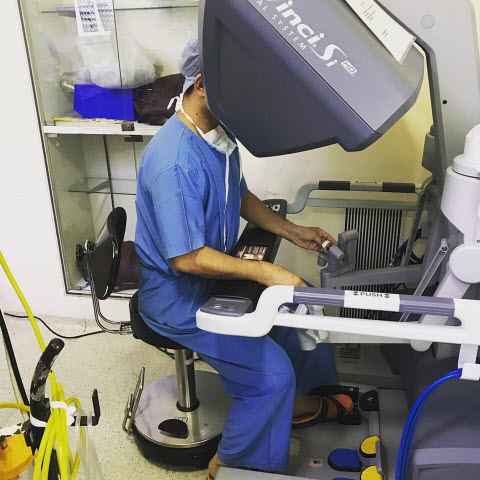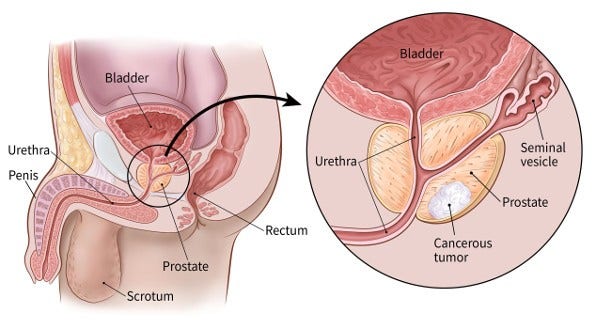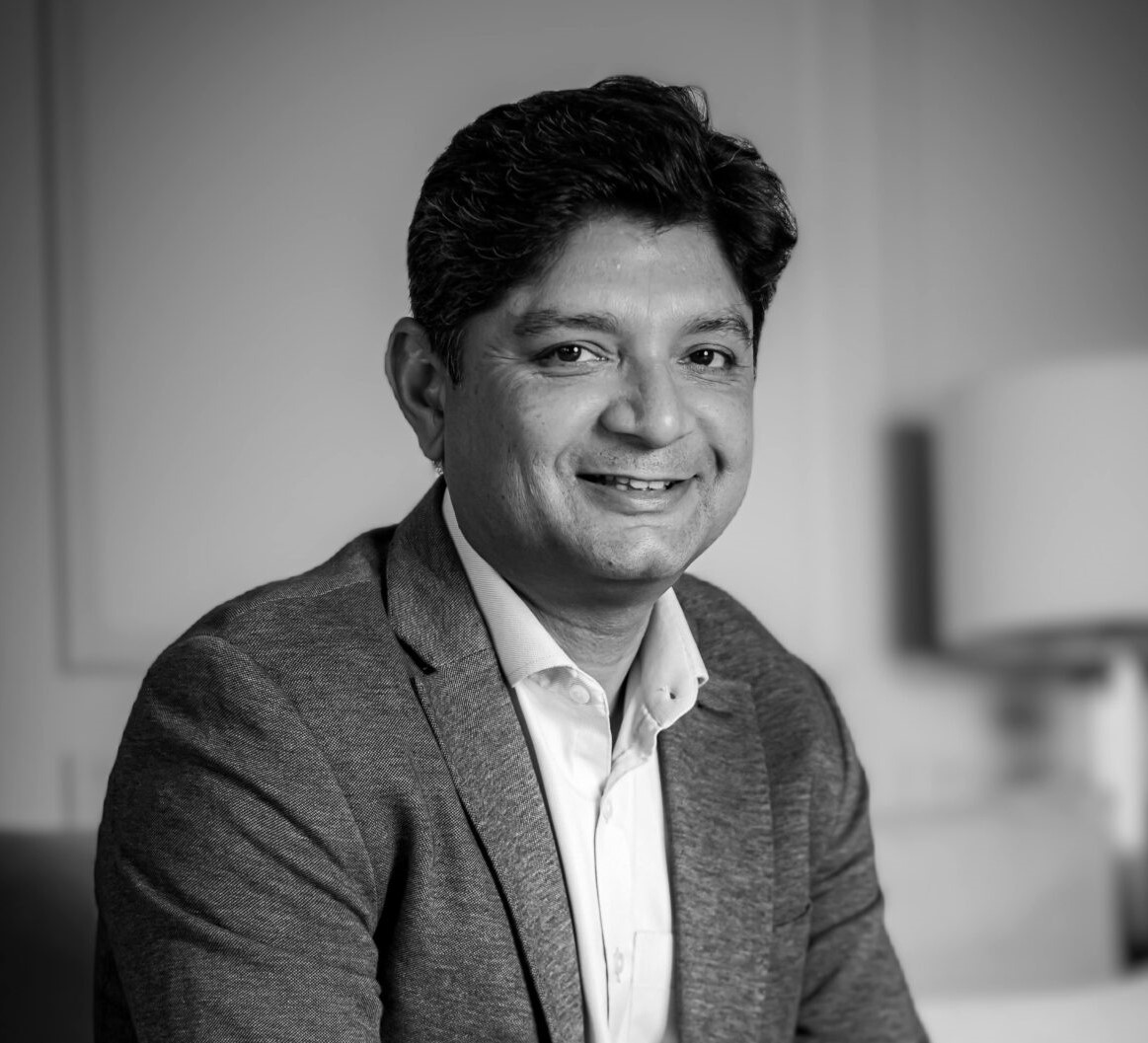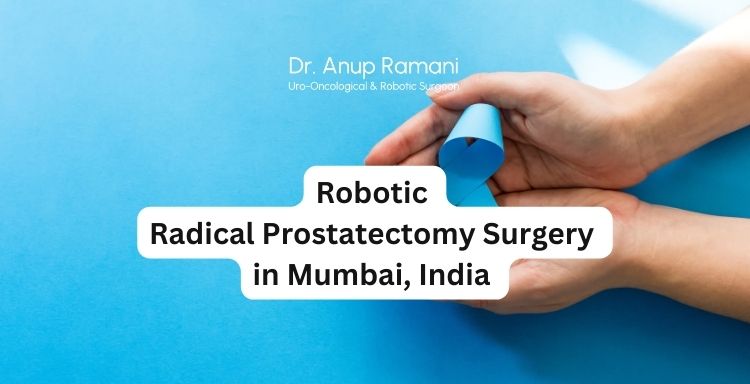Dr Anup Ramani @ Copyright 2024
By Dr. Anup Ramani
Introduction
Robotic Radical Prostatectomy has become one of the most sought-after procedures for prostate cancer treatment, especially for men looking for minimal invasive options. When considering this advanced treatment, choosing the right location is critical-and Mumbai, India, is fast emerging as a leading destination for this surgery. So, why Mumbai? This article will walk you through everything you need to know about choosing Mumbai for Robotic Radical Prostatectomy surgery and treatment.
Understanding Prostate Cancer and its Treatment Options
What is Prostate Cancer?
Prostate cancer is a common cancer in men, affecting the prostate gland responsible for seminal fluid production. It can be life-threatening if not treated promptly, but the good news is that several advanced treatments, including surgery, radiation, and hormone therapies, are available today.
Conventional vs. Modern Treatments
While conventional treatments like open surgery have been effective, they often come with higher risks, extended recovery times, and potential complications. Modern approaches, particularly robotic surgeries, offer a safer, more efficient alternative with minimal invasiveness.
What is Robotic Radical Prostatectomy?
Definition and Procedure Overview
Robotic Radical Prostatectomy is a cutting-edge surgical procedure designed to remove the prostate gland while minimizing damage to surrounding tissues. Using robotic arms controlled by a skilled surgeon, this procedure offers enhanced precision, reducing the risks often associated with traditional surgery.
How it Differs from Traditional Prostate Cancer Surgery
Unlike conventional open surgery, which involves larger incisions, Robotic Radical Prostatectomy uses tiny incisions. This allows surgeons to have better control and visibility, resulting in fewer complications and faster recovery.

The Rise of Robotic Radical Prostatectomy in India
Growth of Minimal Invasive Surgeries in India
India, particularly cities like Mumbai, has seen significant growth in the field of minimal invasive surgeries. As the country continues to adopt global healthcare standards, Robotic Radical Prostatectomy is becoming more accessible and affordable for patients around the world.
Availability of Robotic Radical Prostatectomy in India
With top-tier hospitals in India offering this advanced procedure, patients now have access to world-class treatment options that were once limited to Western countries. Mumbai stands out as a key hub, thanks to its advanced infrastructure and medical expertise.
Why Choose Mumbai for Robotic Radical Prostatectomy?
Surge in Medical Tourism in Mumbai
Mumbai has long been known as a global healthcare destination. International patients flock here for high-quality treatments at a fraction of the cost compared to the US, UK, or Europe. The city offers top-notch hospitals, cutting-edge technology, and highly qualified surgeons.
High-Quality Healthcare Infrastructure
Mumbai’s healthcare facilities are equipped with state-of-the-art technology, including the latest robotic surgery systems. The quality of care in Mumbai’s hospitals is on par with the best in the world, with highly trained professionals providing top-tier service.
Expertise of Prostate Cancer Surgeons in Mumbai
Mumbai is home to some of the most experienced prostate cancer surgeons in India. These experts have undergone rigorous training, both locally and internationally, and are highly skilled in performing Robotic Radical Prostatectomy with excellent outcomes.
Minimal Invasive Radical Prostatectomy: A Game Changer
Benefits of Minimal Invasive Surgery for Prostate Cancer
Minimal invasive surgery offers several advantages, including smaller incisions, less pain, quicker recovery, and reduced risk of complications. In Mumbai, this approach is widely used, making it a preferred choice for prostate cancer patients.
Why Minimal Invasive Radical Prostatectomy is Preferred in Mumbai
Mumbai hospitals have perfected minimal invasive techniques, offering patients a smooth and efficient surgical experience. Whether you’re a local or international patient, you can expect top-quality care with minimal disruption to your daily life.
Advantages of Robotic Surgery for Prostate Cancer
Precision and Accuracy in Tumor Removal
The precision offered by robotic systems is unparalleled. Surgeons can remove cancerous tissues with extreme accuracy, minimizing the risk of leaving any harmful cells behind.
Reduced Recovery Time and Fewer Complications
Thanks to the minimal invasiveness of robotic surgeries, patients typically recover faster and experience fewer post-operative complications compared to traditional surgery.
Enhanced Postoperative Outcomes
Patients undergoing Robotic Radical Prostatectomy in Mumbai often report excellent postoperative outcomes, including better urinary and sexual function.

Prostate Cancer Surgeons in Mumbai: Expertise You Can Trust
Renowned Surgeons Specializing in Robotic Radical Prostatectomy
Mumbai boasts a number of highly respected prostate cancer surgeons with vast experience in robotic procedures. Many of them are internationally recognized for their contributions to prostate cancer treatment.
What to Look for in a Prostate Cancer Surgeon
When choosing a surgeon, consider their experience, patient testimonials, and success rates in performing Robotic Radical Prostatectomy. Mumbai’s surgeons are known for their patient-centered approach and outstanding outcomes.
Cost-Effective Prostate Cancer Surgery in Mumbai
Comparison of Costs: Mumbai vs. Other International Cities
One of the most significant reasons patients choose Mumbai is the cost. Prostate cancer surgery in Mumbai is far more affordable than in Western countries, without compromising on quality.
Financial Benefits for International Patients
International patients often find that even with travel and accommodation costs, the overall expense of getting surgery in Mumbai is much lower than in their home countries.
How International Patients Are Benefiting
With personalized care, clear communication, and comprehensive support, international patients find the process seamless and reassuring when choosing Mumbai for their prostate cancer treatment.
What to Expect Before, During, and After Surgery
Pre-Surgical Preparations and Considerations
Before surgery, patients undergo detailed assessments and consultations to ensure they are well-prepared for the procedure.
The Robotic Radical Prostatectomy Procedure: Step by Step
During the surgery, robotic systems provide surgeons with enhanced precision, allowing them to perform the procedure with minimal invasiveness. The surgery typically lasts a few hours, with most patients returning home within a few days.
Post-Surgical Care and Recovery
After surgery, patients can expect faster recovery times, minimal pain, and fewer complications compared to traditional surgery. Mumbai hospitals offer excellent post-surgical care to ensure patients recover fully.
Minimal Invasive Radical Prostatectomy in Mumbai: The Best of Both Worlds
Why Mumbai is a Preferred Destination for Minimal Invasive Surgery
Mumbai combines advanced technology, highly skilled surgeons, and affordable costs, making it an ideal location for minimal invasive prostate cancer surgery.
How Technology Enhances Patient Experience
The use of robotic technology in Mumbai’s hospitals enhances patient outcomes, offering a smoother, less invasive treatment option for prostate cancer.
Comprehensive Cancer Care in Mumbai
Mumbai’s hospitals offer a range of comprehensive cancer care services, including follow-up treatments, counseling, and rehabilitation, ensuring holistic care for prostate cancer patients.
Follow-Up Treatments and Support Systems
Patients can expect continuous support and follow-up care to ensure their recovery is smooth and their health is maintained after surgery.
Conclusion
Choosing Mumbai for Robotic Radical Prostatectomy offers patients a combination of cutting-edge technology, highly skilled surgeons, and cost-effective treatment options. With its advanced healthcare infrastructure, Mumbai is fast becoming a top destination for prostate cancer treatment, especially for those seeking minimal invasive procedures. Whether you’re a local patient or traveling from abroad, you can trust Mumbai’s healthcare system to provide world-class care and positive outcomes.
FAQs - Robotic Radical Prostatectomy Surgery
Is Robotic Radical Prostatectomy Safe for All Patients?
Yes, it is generally safe, but a thorough evaluation by a specialist is necessary to ensure it’s the right option for each patient.
What is the Recovery Time After Robotic Surgery for Prostate Cancer?
Patients typically recover in 2-3 weeks, which is much faster than traditional surgery recovery times.
Are There Any Risks Associated with Minimal Invasive Surgery for Prostate Cancer?
As with any surgery, there are risks, but they are considerably lower in robotic surgeries due to the precision and minimal invasiveness.
Can International Patients Get Prostate Cancer Treatment in Mumbai Easily?
Yes, Mumbai has excellent medical tourism support, offering visa assistance, accommodation, and personalized care for international patients.
About Author

Uro-Oncological & Robotic Surgeon
Dr. Anup Ramani is a robotic uro-oncological surgeon and an internationally recognized expert in robotic surgery for prostate, kidney and urinary bladder cancers. With more than two decades of robotic experience and 2,000+ robotic procedures, he brings unmatched precision and outcomes to complex uro-oncology cases. He is widely published in his field and is known for a personal, transparent approach-often spending over an hour in initial consultations to educate patients on its disease, surgery and recovery. His expertise spans prostate cancer treatment, kidney and bladder cancer surgery, adrenal gland surgery, kidney stone treatment, penile cancer surgery and enlarged prostate management. Dr. Ramani advocates the advantages of robotic surgery-magnified 3D vision, tremor-filtered precision, minimal scarring, lower blood loss and faster recovery-helping patients return to life sooner.
Table of Contents
Recent Blogs
Best Uro-Oncological surgeon
Specialist in India for Robotic Surgery
MCh, DNB, MS, DNB
Dr. Anup Ramani
CONTACT
Uro-Oncologist in India,
Best Robotic Surgeon for Uro Oncology Surgery
1407, One Lodha Place Next to World Towers Senapati Bapat Marg, Worli, Mumbai. 400013.
Dr Anup Ramani @ Copyright 2024 – Website Maintenance, SEO & GEO by Opal Infotech
- Partial penectomy is done in cases where glans and distal penis is involved with carcinoma.
- Partial penectomy is a type of organ-preserving surgery. Preservation of sexual and micturational function depends on the surgical dissection and reconstruction of residual urethra.
- Patients who develop stones in the kidney or ureter, often experience severe pain.
- This condition usually needs a procedure to remove the kidney stones.
- This procedure is called ureteroscopy and is performed very commonly.
- It does not require any cuts and hence it is painless.
- The procedure is performed with an endoscope inserted through the penis under spinal anesthesia.
- The scope is inserted through the penis into the kidney and stones are dissolved with a laser.
- The procedure takes about 40-50 minutes.
- A catheter (urine pipe) is kept after the procedure to drain the bladder. A stent is kept in the kidney at the same time.
- Patient is mobile and walking in the room the same evening.
- Hospital stay is one night and patient is discharged the next day after removal of the catheter.
- Patient has to come back after six weeks to remove the stent in the kidney.
- Patients can resume office a week after surgery and heavy activities like running, weight lifting, a month after the procedure.
- We offer fixed packages for this procedure which can be obtained by calling our helpline +91 9967666060.
- Men with an enlarged prostate, which is a normal ageing changes, often experiencing difficulty passing urine. This condition usually needs a procedure to trim the prostate and relieve the blockage.
- This procedure is called TURP and is performed very commonly.
- It does not require any cuts and hence it is painless.
- The procedure is performed with an endoscope inserted through the penis under spinal anaesthesia.
- The overgrown prostate is dissolved with a laser bloodlessly.
- The procedure takes about 40 minutes.
- A catheter (urine pipe) is kept after the procedure to drain the bladder.
- Patient is mobile and walking in the room the same evening.
- Hospital stay is two nights and patient is discharged with the catheter, which is removed after 4 days.
- Patients can resume office a week after surgery and heavy activities like running, weight lifting, a month after the procedure.
- We offer fixed packages for this procedure which can be obtained by calling our helpline +91 9967666060.
-
Robotic adrenalectomy is a sophisticated, complex surgery and it is very important that an experienced surgeon performs this surgery to avoid major complications.
-
Once the anesthesia is done, and patient positioned, three micro cuts (3mm each) are made in the patient’s abdomen.
-
The arms of the Da Vinci robot are connected to the cuts via ports (tubes).
-
Dr. Ramani then sits in the controlling console to perform the surgery.
-
On an average, a robotic adrenalectomy takes one hour.
-
The surgery is almost completely bloodless and there has never been any need to transfuse blood after surgery.
-
A urine catheter and bag to drain the bladder is inserted during surgery.
-
A tiny drain pipe may be inserted in the surgical side of the abdomen, connected to a bag.
-
Patient is kept nil-by-mouth the day of the surgery, with IV fluids. Sips of water are started the next day and solid food by day three.
-
The drain pipe, if kept, is removed in the room on day 2 after surgery.
-
The catheter is removed on day two after surgery.
-
Total hospital stay for robotic adrenalectomy is 4 nights (including night before surgery).
-
Post discharge, a doctor from the surgical team visits the patient at home/ hotel room once every day.
On the day of discharge, patient is totally self-sufficient. They are able to walk freely without any pain, dress themselves, shower, toilet and they do not need to hire any nurse or help at home. Almost all patients are back to work within 2 weeks of surgery.
Heavy activities like running, weight lifting can be resumed after a month
Follow up after an adrenalectomy is in the form of CT scans, once a year for 5 years.
Local patients usually meet Dr. Ramani after two weeks to discuss report.Outstation patients are counselled on a phone consultation.
- Dr. Ramani is one of the very few surgeons in India who has the expertise to perform a robotic surgery for bladder cancer, which includes removing the urinary bladder and reconstructing a new bladder robotically.
- Robotic radical cystectomy is an extremely sophisticated, complex surgery and it is very important that an experienced surgeon performs this surgery to avoid major complications.
- Once the anaesthesia is done, and patient positioned, six micro cuts (3mm each) are made in the patient’s abdomen.
- The arms of the Da Vinci robot are connected to the cuts via ports (tubes).
- Dr. Ramani then sits in the controlling console to perform the surgery.
- On an average, a robotic radical cystectomy with an ileal conduit takes 3-4 hours.
- The surgery is almost completely bloodless and there has never been any need to transfuse blood after surgery.
- A urine catheter and bag to drain the new bladder is inserted during surgery.
- Two tiny drain pipe in inserted in the surgical side of the abdomen, connected to a bag.
- Patient is kept nil-by-mouth for 4 days after surgery with IV supplementation of patient’s daily requirements of calories, fats, carbohydrates, proteins and electrolytes.
- The drain pipes are removed in the room on day 3-5 after surgery.
- Total hospital stay for radical cystectomy is 8 nights (including night before surgery).
- Post discharge, a doctor from the surgical team visits the patient at home/ hotel room once every day.
- On the day of discharge, patient is totally self-sufficient. They are able to walk freely without any pain, dress themselves, shower, toilet and they do not need to hire any nurse or help at home.
- Almost all patients are back to work within 6 weeks of surgery. Heavy activities like running, weight lifting can be resumed after two months.
Follow up after a radical a cystectomy is in the form of CT scans, once a year for 5 years.
Histopathology report: Local patients usually meet Dr. Ramani after two weeks to discuss report.
Outstation patients are counselled on a phone consult. Depending on the report, patient may or may not need chemotherapy after surgery.
If chemo is needed, patients may choose to get it done with a medical oncologist of their choice or avail the services of one of the four medical oncologists on our team.
- Robotic partial nephrectomy is a sophisticated, complex surgery and it is very important that an experienced surgeon performs this surgery to avoid major complications. Robotic radical (total) nephrectomy is
- relatively easier but still requires significant experience to consistently deliver results.
- Once the anaesthesia is done, and patient positioned, five micro cuts (3mm each) are made in the patient’s abdomen.
- The arms of the Da Vinci robot are connected to the cuts via ports (tubes).
- Dr. Ramani then sits in the controlling console to perform the surgery.
- On an average, a robotic radical nephrectomy takes one hour and a robotic partial nephrectomy takes about an hour and half.
- The surgery is almost completely bloodless and there has never been any need to transfuse blood after surgery.
- A urine catheter and bag to drain the bladder is inserted during surgery.
- A tiny drain pipe in inserted in the surgical side of the abdomen, connected to a bag.
- Patient is kept nil-by-mouth the day of the surgery, with IV fluids. Sips of water are started the next day and solid food by day three.
- The drain pipe is removed in the room on day 3 after surgery. The catheter is removed on day two after surgery.
- Total hospital stay for radical/partial nephrectomy is 4 nights (including night before surgery).
- Post discharge, a doctor from the surgical team visits the patient at home/ hotel room once every day.
- On the day of discharge, patient is totally self- sufficient.
- They are able to walk freely without any pain, dress themselves, shower, toilet and they do not need to hire any nurse or help at home.
- Almost all patients are back to work within 2-3 weeks of surgery.
- Heavy activities like running, weight lifting can be resumed after a month.
- Follow up after a radical/partial Nephrectomy is in the form of CT scans, once a year for 5 years.
- Local patients usually meet Dr. Ramani after two weeks to discuss report.
- Outstation patients are counselled on a phone consultation.






